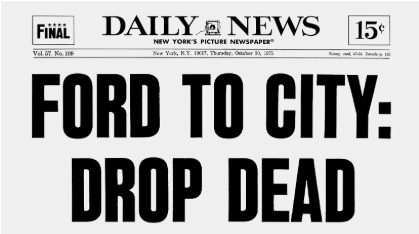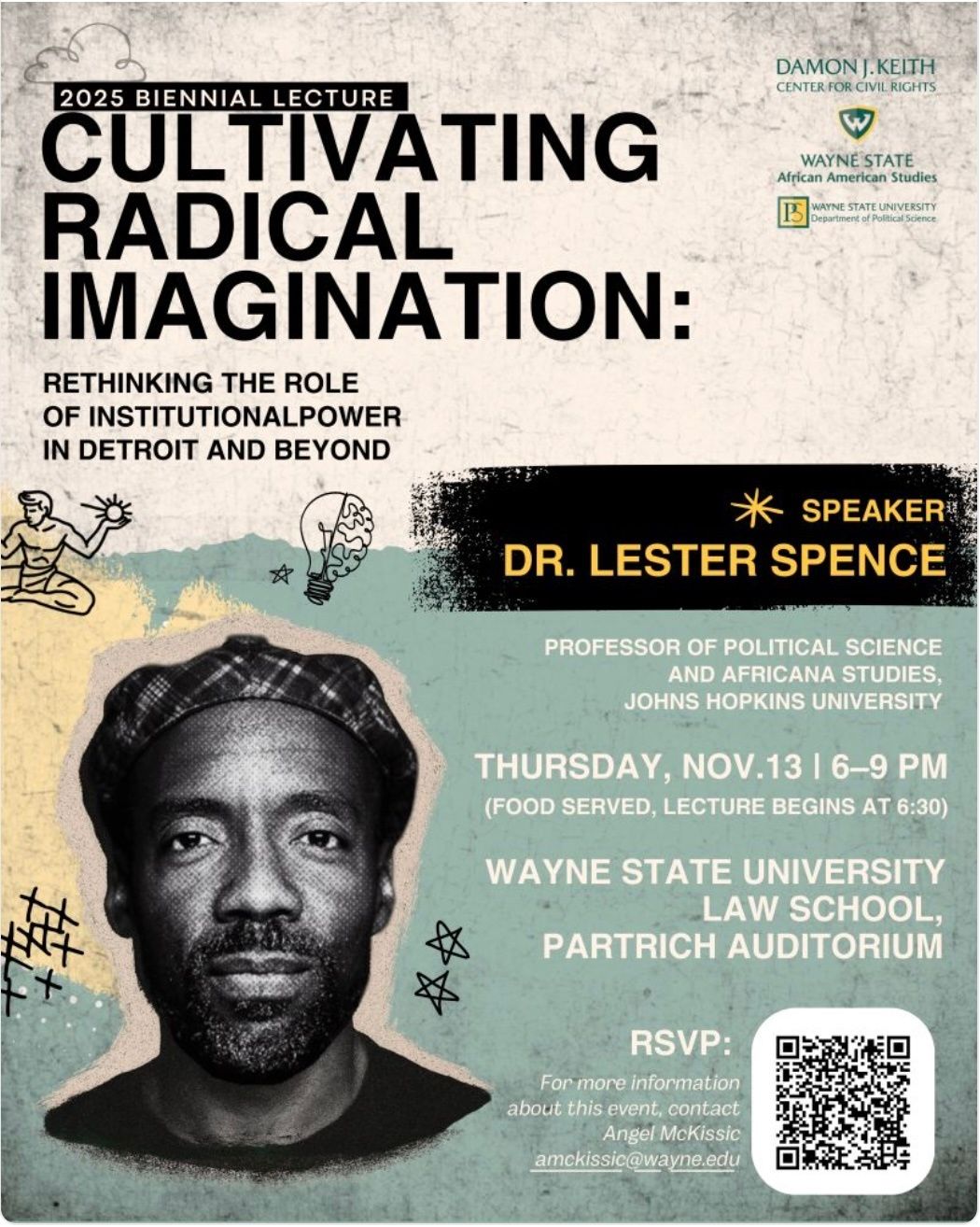- The Counterpublic Papers
- Posts
- The Counterpublic Papers vol. 10 no. 5
The Counterpublic Papers vol. 10 no. 5
This Week
Publish or Perish: Disseminating Black Thought in Times of Crisis (more on the title)
Mamdani gets elected
Democrats Cave on the Shutdown
This week’s events (including TODAY/MONDAY)
Publish or Perish…followup from last issue
So my last post dealt with the different meanings embedded in the title of our second Africana event “Publish or Perish: Disseminating Black Thought in Times of Crisis.” But what I didn’t have the space to do, given my self-imposed word count constraint, is get at the “disseminating black thought” part, and why it’s important.
To make a long story short, I believe that for historical reasons, black US populations tend to be democratic bulwarks. And I’m going beyond the party here—I’m not referring to party voting patterns (although given the turn in the GOP I can’t ignore them), but rather to the ideal concept of democracy itself. And for the purposes of this piece when I think about democracy, I’m thinking about a process of making collective decisions that acknowledges heterogeneity (that folks have different interests, identities, and orientations) and the necessity of providing public goods such that this heterogeneity can express itself. Because of our history in this country, we tend to be the ones to defend, sustain, and extend democracy. And we do that through our individual actions (and our individual actions aggregated), through our institutions, and through our thought.
Through our thought.
Now the entire series is called BLACK STUDIES IN A DARK CONJUNCTURE.
The concept of a “conjuncture” we really get from Stuart Hall, the Caribbean-British Marxist. In an interview with the critical geographer Doreen Massey he defines “conjuncture” thusly:
A conjuncture is a period when different social, political, economic and ideological contradictions that are at work in society and have given it a specific and distinctive shape come together, producing a crisis of some kind. The post-war period, dominated by the welfare state, public ownership and wealth redistribution through taxation was one conjuncture; the neoliberal, market-forces era unleashed by Thatcher and Reagan was another. These are two distinct conjunctures, separated by the crisis of the 1970s. A conjuncture can be long or short: it’s not defined by time or by simple things like a change of regime - though these have their own effects. As I see it, history moves from one conjuncture to another rather than being an evolutionary flow. And what drives it forward is usually a crisis, when the contradictions that are always at play in any historical moment are condensed, or, as Althusser said, ‘fuse in a ruptural unity’. Crises are moments of potential change, but the nature of their resolution is not given. It may be that society moves on to another version of the same thing (Thatcher to Major?), or to a somewhat transformed version (Thatcher to Blair); or relations can be radically transformed. (Hall, Stuart, and Doreen Massey. 2015. "Interpreting the Crisis."
Hall goes on to say that, like Gramsci, he thinks the notion can be used methodologically, as a general way of understanding history. See how it fits?
What Hall and Massey do in this interview (and please let me know if you want a copy) is distinguish the period defined by the 2008 financial crisis (the period they write within) from previous ones, and then use that distinction to determine how best to respond, recognizing the independent power of ideas. If the moment is an in-between moment (between conjunctures, as it were), thought can help flip the scales one way or another. If the moment is either a revolutionary or counter-revolutionary moment, thought can help stabilize or destabilize revolutionary/counter-revolutionary activity.
Neither Hall nor Massey are concerned with black thought (in that interview). In fact, as the original interview was conducted both for a UK audience (originally published in the UK journal Soundings) and in 2010. As a result it largely ignores US politics per se (no discussion of the Tea Party movement) and then does not even imagine the possibility that within less than a year there’d be three world altering political movements, one centered in the Middle East (Arab Spring), and then two in the US (Occupy Wall Street, which doesn’t happen without Arab Spring), and then Black Lives Matter. But coming back to the title, with the series we want to communicate the importance of black thought in extending the possibilities for black life in the current counter-revolutionary moment.
Mamdani Election
Zohran Mamdani won the NYC election. More to say and write later (I kind of promise!). But speaking of OWS, if you’ve time it’s worth going back to early critiques many of which focused on the movement’s inability to deliver on its promises.
Hot takes rarely take time and space into account.
Fifty years ago, Halloween week, the New York Post published a story about the federal response to NYC’s budget woes:

I locate the neoliberal turn as beginning a bit earlier, but with this headline it arguably begins in earnest.
What happens in NYC kickstarts the urban austerity approach that cities like NYC were forced to follow (while cities like Baltimore followed gleefully), it centered finance capital as the dominant post-1970 form of capital, it relatedly shifted the commonsense about urban form and function, and then it radically enhanced the role of police forces.
Occupy Wall Street (which began in NYC) is a direct response to that headline.
Black Lives Matter is an indirect response—but we don’t have Black Lives Matter without hip-hop which is also a direct response. The growth of Democratic Socialists of America is a direct institutional and organizational response. Bill de Blasio was arguably the first mayoral response, AOC was the first congressional response.
Mamdani represents successful execution of the beta test.
Democrats Cave
This is going to be the hot take response to the decision of 8 Democratic Senators to end the government shut down. I’d say that it isn’t quite wrong….but it doesn’t take into account the development that had to occur within the party to shut the government down in the first place. Although none are up for re-election in 2026 and two are retiring from the Senate, I think another sign of development—one that regular citizens can hasten along—is an increased willingness to punish elected officials that can be read as collaborating/capitulating with the administration. Use every political event as an opportunity.
(Related but not related. Possibly during the Detroit Lions-Washington Commanders game, Trump pardoned almost 80 individuals associated with the plot to overthrow the government. We will get through this….but we cannot forget this. Under any circumstances.)
THIS WEEK
If you’re around tonight (MONDAY) and next Monday we’re doing the second iteration of our backsliding talk. It’s virtual, and open to the public. Starts at 6:30. Fall through.
And if you’re around the Detroit area or have time on Thursday fall through the talk below. I think it’ll be streamed.

As always, thanks for reading. Please feel free to share. See you soon. |